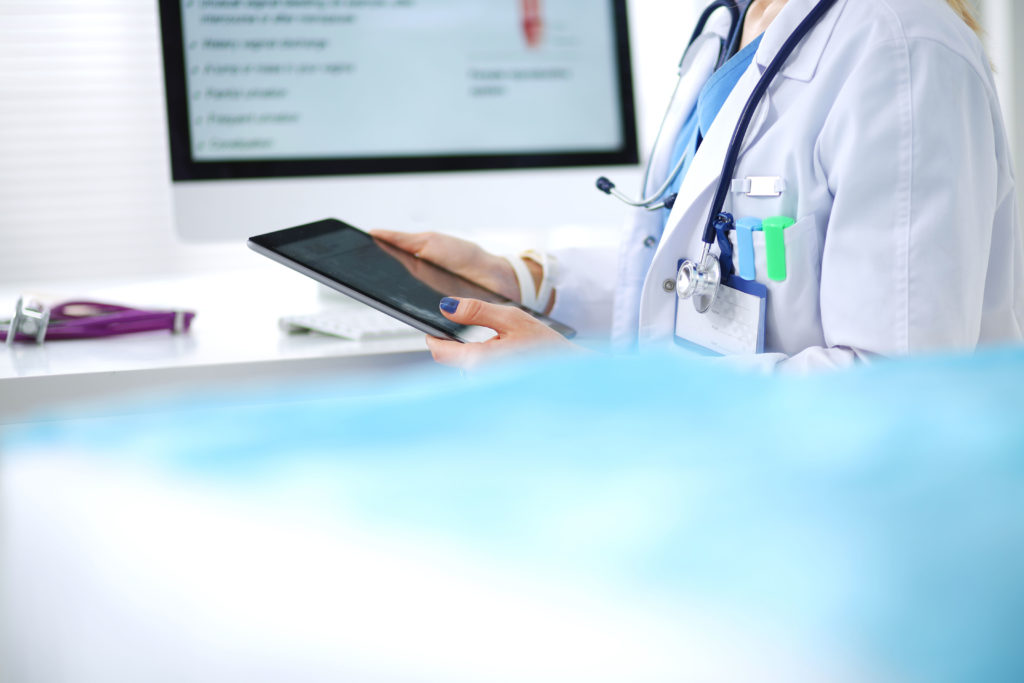On 20 June 2019, for the first time, the German Federal Joint Committee (FJC − Gemeinsamer Bundesausschuss / G-BA), the highest decision-making body of the joint self-government of physicians, dentists, hospitals and statutory health insurance funds (SHI − gesetzliche Krankenversicherung / GKV) in Germany, made the resolution that a specific biomarker-based test to support the treatment decision for or against adjuvant chemotherapy, i. e. after primary surgery, in certain breast cancer patients may be reimbursed by the SHIs. The present resolution is of general importance. The FJC, inter alia, has further specified the validation standards for novel diagnostic methods. The reimbursement of various biomarker-based diagnostics for the use in breast cancer treatment is currently under assessment also in other European jurisdictions, partly with a patchwork of different standards and outcomes.
An increasing number of biomarker-based tests which claim to identify those breast cancer patients who will benefit from adjuvant chemotherapy have in recent years also entered the German healthcare market. While such diagnostics can be very expensive (up to approximately 3,000.00 euros per test) and, up until now, have to be paid by the patients themselves, the actual benefit and risks of those tests often remain unclear. As the main grounds of the present resolution of the FJC and the oral consultation proceedings illustrate, the threshold for a positive assessment and reimbursement of novel medical methods can be very high, particularly, in case biomarker-based diagnostics may potentially lead to the complete omission of a necessary standard treatment of a life threatening disease.
Deutsche Zusammenfassung:
Am 20. Juni 2019 beschloss der Gemeinsame Bundesausschuss (G-BA), das oberste Entscheidungsgremium der gemeinsamen Selbstverwaltung von Ärzten, Zahnärzten, Krankenhäusern und gesetzlichen Krankenkassen (GKV) in Deutschland, erstmals, dass ein spezifischer biomarkerbasierter Diagnosetest zur Unterstützung der Behandlungsentscheidung für oder gegen die adjuvante Chemotherapie, d. h. nach einer primären Operation, bei bestimmten Brustkrebspatientinnen von der GKV erstattet werden kann. Der vorliegende Beschluss ist von allgemeiner Bedeutung. Der G-BA hat unter anderem die Validierungsstandards für neuartige Diagnosemethoden weiter spezifiziert. Die Erstattung mehrerer biomarkerbasierter Diagnostika für den Einsatz in der (Brust-)Krebsbehandlung wird derzeit auch in anderen europäischen Ländern geprüft, teils mit unterschiedlichen Standards und Ergebnissen.
Immer mehr biomarkerbasierte Tests, die behaupten, diejenigen Brustkrebspatientinnen zu identifizieren, die von einer adjuvanten Chemotherapie profitieren werden, sind in den letzten Jahren auch auf den deutschen Gesundheitsmarkt gekommen. Während solche Diagnostika sehr teuer sein können (bis zu ca. 3.000,00 Euro pro Test) und bislang von Patientinnen selbst bezahlt werden müssen, bleiben der tatsächliche Nutzen und die Risiken dieser Tests oft unklar. Wie die tragenden Gründe zum vorliegenden Beschluss des G-BA und die mündlichen Anhörungsverfahren verdeutlichen, können die Hürden für eine positive Bewertung und Kostenerstattung neuartiger medizinischer Methoden sehr hoch sein, insbesondere wenn biomarkerbasierte Diagnostika möglicherweise zum gänzlichen Verzicht auf eine notwendige Standardbehandlung einer lebensbedrohlichen Krankheit führen können.

